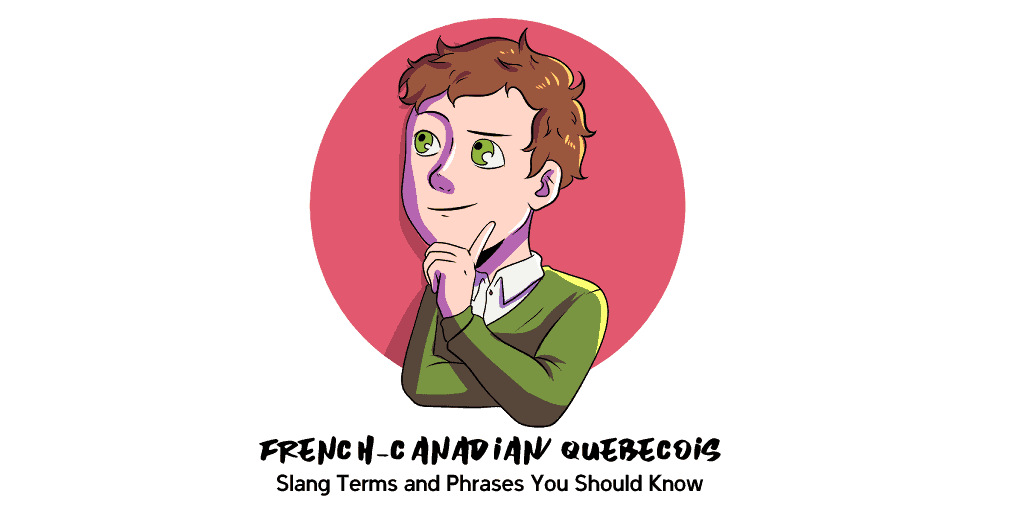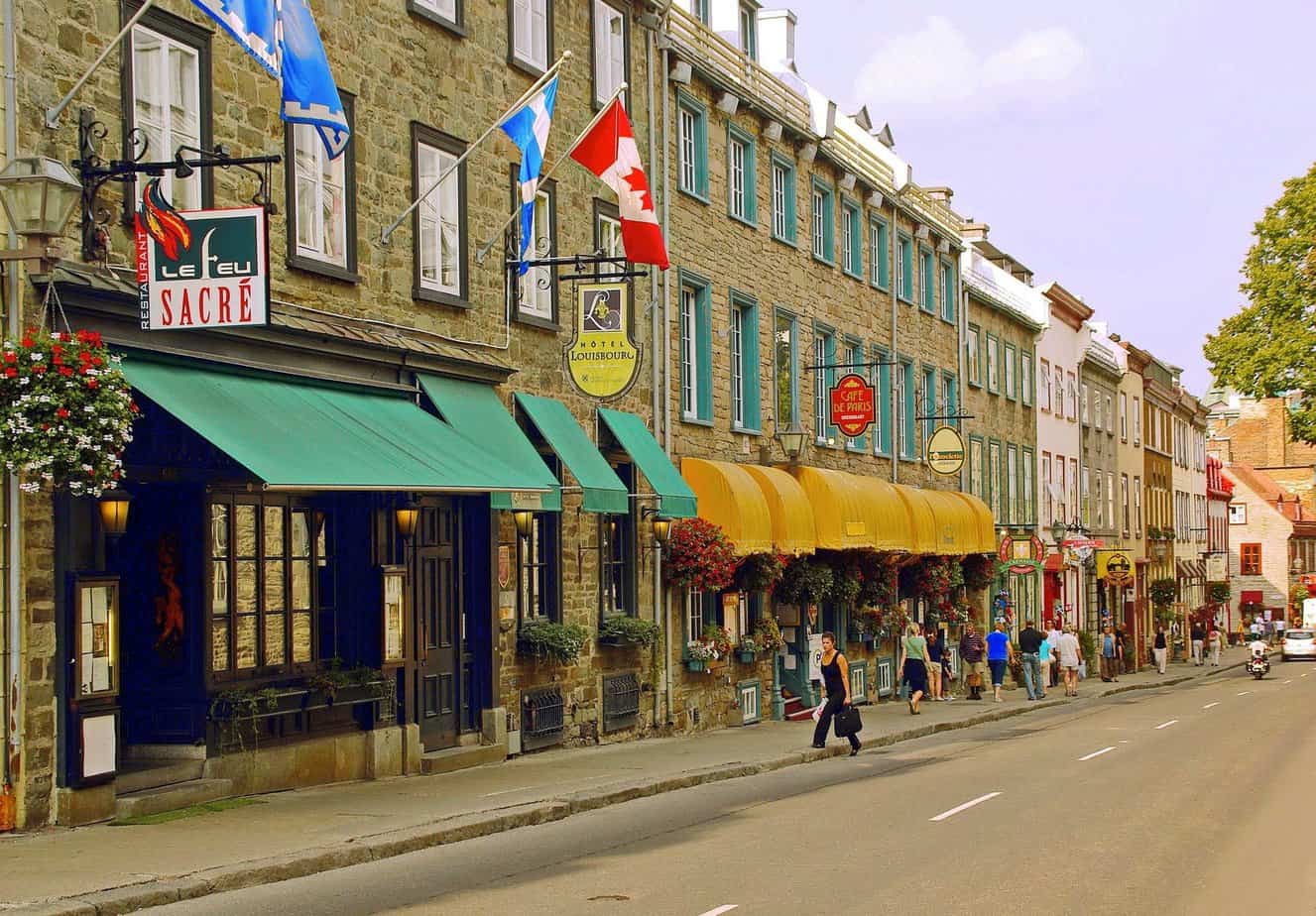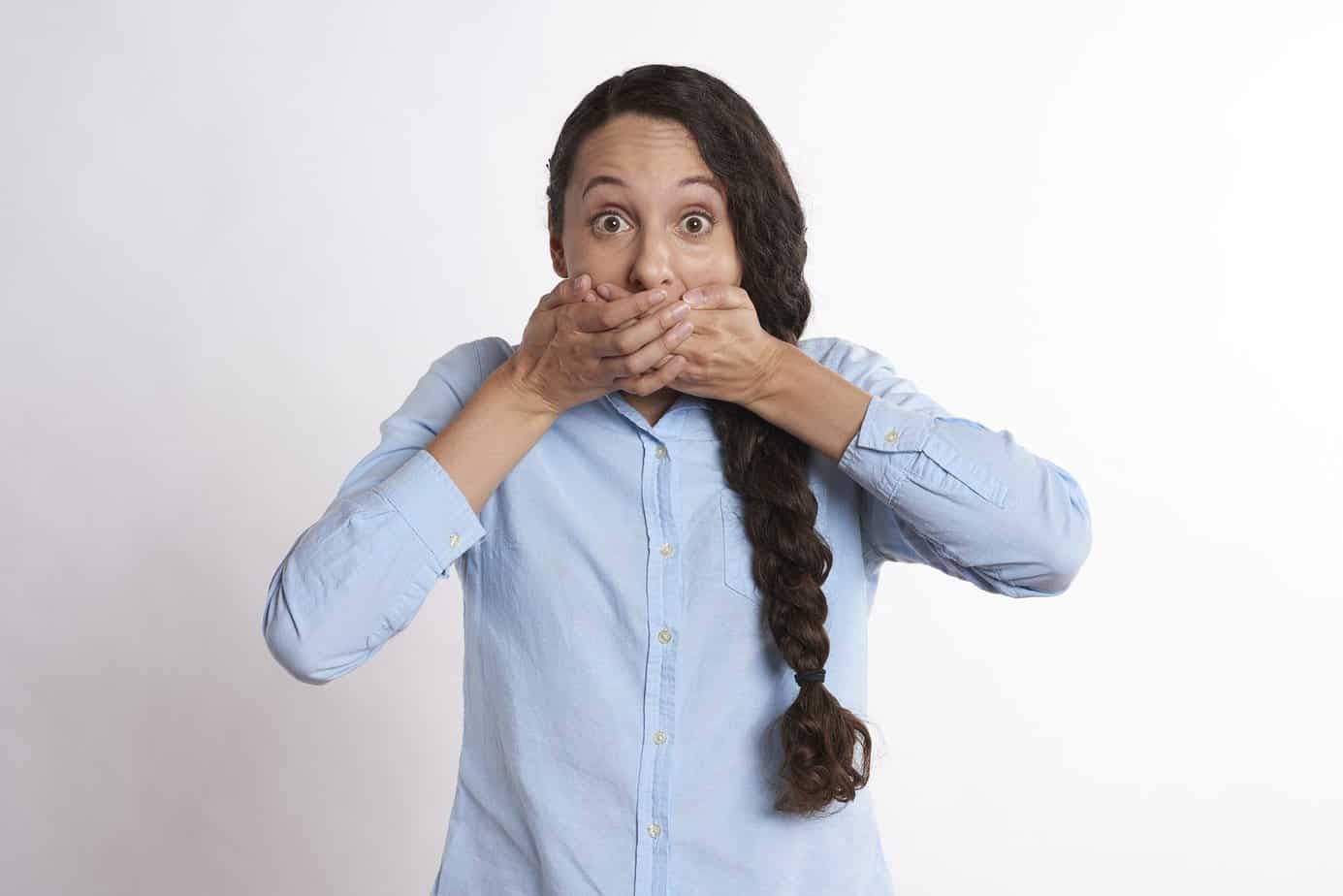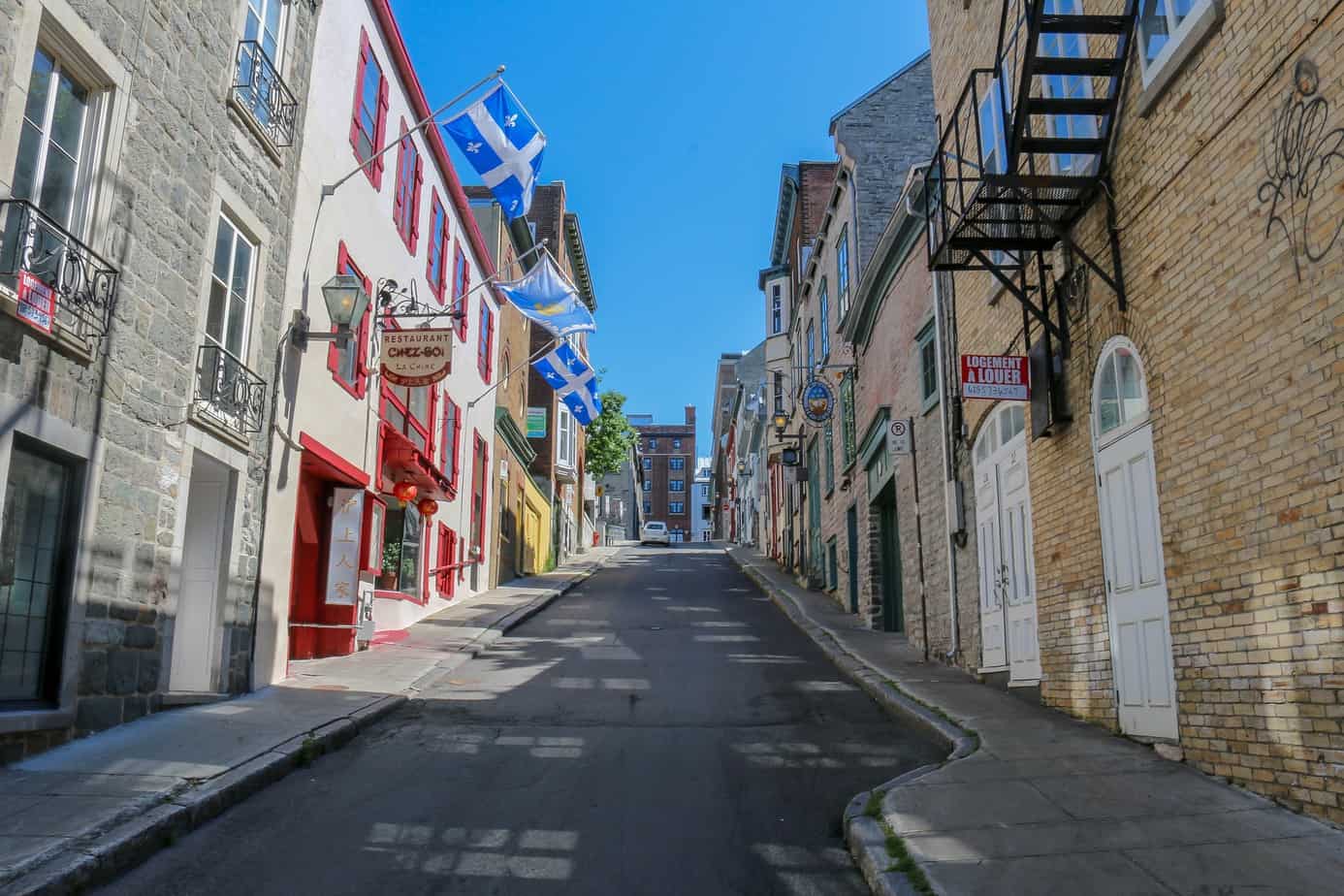Are you thinking about travelling to French-speaking Canada? Hoping to watch a French Canadian film or TV show? First things first, the French spoken in France and the French spoken in Canada are two very different beasts.
This article is here to help you with the ins and outs of Canadian French.

The Québécois
Québec French (français québécois), also known as Québécois, is the most prominent variety of French spoken in Canada.
It’s the native language of approximately 7.3 million Canadians, comprising 20.6% of the Canadian population. Most native French speakers in Canada live in Quebec, which is the only province where French is the sole official language. 95% of Quebec Province’s population speaks French as their first or second language.
Québécois is very distinct from the French spoken in France. It has its own unique characteristics and vocabulary, due to its own unique history.
The Origin of Québécois
In 1608, France claimed rule over what is now modern day Canada. The French colonists established their own permanent settlements and imposed French as the official language.
In 1763 Britain overthrew the French rule of Québec and established control with the Treaty of Paris. This resulted in the remaining French elite fleeing, the ending of commercial trade with France and the significant decline of the teaching of French in the region. The English speaking minority took power and instituted the use of English as the official language.
It was there that French began to mix with English. This resulted in joual, a derogatory term that comes from parler cheval, meaning ‘to talk horse.’ This is what we have come to know as Québécois today.

Via Pixaby
The difference between Standard French & Québécois
Québécois is based on the French spoken in Paris during the 17th and 18th centuries, however when the English took over, Québec became isolated from other French speakers around the world. As such, Québécois sounds more archaic as it has kept some of the characteristics that are no longer found in standard French, which continued to evolve.
It’s important to note that both the French and the Québécois use the same standard French in writing. They use the same sentence structure and grammatical rules.
The difference is found mostly in the accents, vocabulary and sayings that are specific to French Canadians. Québécois French also uses more anglicisms, words and phrases taken from English, due to its very close contact and proximity with the English language.
Common Québécois Vocabulary and Phrases
Here are some commonly used vocabulary and phrases found in casual conversation in Québécois.
Québécois Vocabulary
| Les binnes (f pl) | bean |
| Les bobettes (f pl) | knickers, panties, underwear |
| Bedaine de bière | beer belly |
| Un char | car |
| Une champlure | tap |
| Un chien-chaud | hot dog |
| Un clavardage | chat |
| Fin(m)/Fine(f) | Nice/Sweet! |
| Frencher | to french kiss |
| Jaser | to chat |
| Une laveuse | washing machine |
| Le liquor *Be careful of this false friend. | soda |
| Magasinage *Literally magasin (shop) & the suffix -age to show the action of shopping | shopping |
| Ma blonde | my girlfriend |
| Un robeur *From the English word rubber | tire |
| Stacose *Comes from parce que | because |
Common Québécois Phrases
| Attache ta tuque! *A tuque is a Canadian word for beanie | Hold on tight! |
| Avoir la langue à terre *Literally to have my tongue on the floor | to be extremely tired/hungry |
| Avoir des papillons dans l’estomac | to have butterflies in your stomach |
| Avoir le feu au cul *Literally to have fire in one’s butt *Cul is quite vulgar to refer to someone’s buttocks | to be angry |
| Avoir des vers dans le cul *Literally to have worms in the butt | to have ants in your pants |
| Avoir la fly à l’air | to have your fly open |
| Avoir du front tout de la tête | to have some nerve |
| Avoir son voyage | to be at the end of your tether |
| Avoir mal aux cheveux *Literally to have a hair ache | to have a terrible hangover |
| Avoir les shakes | to have the shakes/to be scared |
| Arrête de faire le boss de bécosses! *Literally stop acting like the boss of the toilets | Stop acting like the boss! |
| Caller l’orginal | to puke/to vomit |
| C’est le fun! | It’s awesome! |
| Chauffer le char *A play on the word chauffeur | to drive the car |
| C’est tiguidou! | It’s all good! |
| Ça a pas d’allure! *Allure has a different meaning in English | It makes no sense at all! |
| Ça vient de s’éteindre | period, end of story |
| Chu dans marde! | I’m in trouble! |
| Calme toé! | Relax! |
| Déguédine! | Hurry up! |
| Drette là | Right here |
| Dûr de comprenure | You don’t understand |
| Être vite sur ses patins *Literally to be quick on one’s skates | to be quick off the mark |
| Fais pas ta neuve! | Don’t be a spoiled brat! |
| Faire du pouce *Literally means to make some thumb | to hitchhike |
| Faire du train | to make a lot of noise |
| Franchement Armand! | That’s taking the piss! |
| J’aime le way qu’à hang | I like your look |
| Je vais aller mailer ma lettre | I’m going to mail my letter |
| Il fait frette! | It’s freezing! |
| Mets-en | Totally/For sure |
| Sacrament! *Comes from the Catholic rite | Dammit! |
| T’as pas rapport | You’re not making sense |
| T’es ben chix | You’re hot |
| T’es faite à l’os | You’re dead meat |
| T’es tellement mean | You’re mean |
| Tire toi une buche *Literally means to take a log | Take a seat |
| Tu me prends pour une valise? *Literally you take me for a suitcase (which can be filled with anything) | You take me for a fool/gullible person? |
| Se calmer le pompon | to stay cool |
Québécois Swear Words and Curses

Via Pixabay
A large amount of Québécois slang, as well as swear words come from the terminology and rites of the Roman Catholic Church. Historically, Quebec has very strong ties to the Catholic faith. This has resulted in some very colorful and at times, highly blasphemous phrases and sayings.
| Calisse *A blasphemous word referring to chalice | Holy fuck |
| Chalice de Crisse! *Literally the Chalice of Christ | Damn it! |
| Crisse! | Christ! |
| Osti! *This translation comes from the bread eaten during Catholic Mass *It can also refer to the F-word | Damn it! |
| Osti de calisse de ciboire de tabarnak *This highly blasphemous saying translates to Host of Chalice of ciborium of tarbernacle | Holy shit/Fucking hell |
| Sacrament! *A Catholic rite | Dammit! |
| Tabarnak | Fuck! |

Via Pixaby
We hope that you’ve enjoyed this ride through a brief history of Quebec, and the vocabulary, phrases and swear words of Québécois.
What are your favorite words and phrases? Have you been to Quebec? What other phrases have you heard?
Let us know in the comments!

Vous avez les yeux dans la graisse de bines = you look tired (you have your eyes in the bean fat)
What is actually being said when in response to Ca va! I hear pas trot pir. What is it?
Pas trop pire perhaps? It means “not bad/ quite good”. Merci
I enjoyed reading this article. Interesting facts about my heritage. (I’m a franco ontarien with québécois heritage). Keep up the great work!
Marcel
My grandparents from Maine always said ” mud a boo” not sure on spelling for being crabby
Marabout: Le Petit Robert (édition numérique de 2014) connaît le sens «régional (Canada)» de marabout : «De mauvaise humeur, désagréable. => boudeur, bougon, irritable.»
Probably marabou – spelling ??
I’m one of 4 first-generation Quebecois-Americans who were raised speaking mostly English though my parents, from rural Quebec, only spoke Quebecois with all the relatives. French-Canadians – at that time, anyway – were continuously told how second-rate their slang-filled and terribly-pronounced rural Quebecois language was compared to what they called “Parisian French”, the “right” way to speak French. My French teacher, a French-Canadian himself, taught us that too. So I came to think so too.
Only now I’ve coming to appreciate that patois. I still love French French, but the Canadian French is different and is beautiful too.
I was hitching in Scotland when I was in my 20’s (75 now) and I got picked up by a senior rural Scot who spoke really thick and slang-filled Scottish English, and though I had great difficulty understanding it, it was beautiful. I felt lucky to be hearing this true language of these rural people. And the variations of Canadian-French, both rural and city, are equally beautiful.
Thanks for the slang (though personally, I don’t use the Catholic-derived curse words. Too blasphemous for me, though I don’t mind others using the swears – well, not too much. I don’t like the words but I appreciate the color of the language. (I know, I write too long).